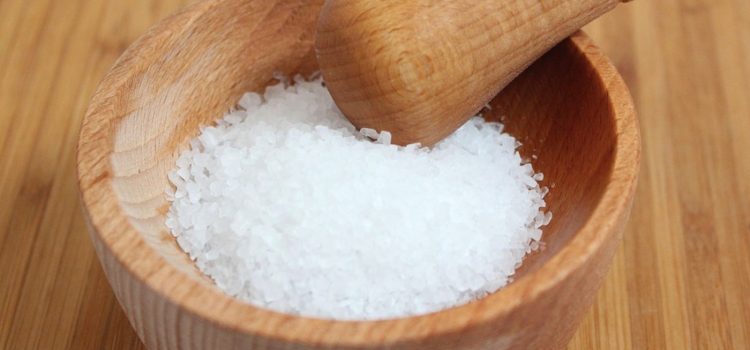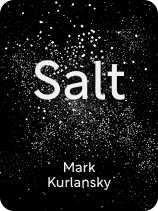

This article is an excerpt from the Shortform book guide to "Salt" by Mark Kurlansky. Shortform has the world's best summaries and analyses of books you should be reading.
Like this article? Sign up for a free trial here.
What is salt? What is the importance of salt?
Salt is a commonplace item found in most people’s homes to season food, but salt is actually much more than that. According to Mark Kurlansky in his book Salt, the seasoning has a biological significance that’s necessary for our survival.
Let’s look at the importance of salt for our bodies and our food.
What Is Salt?
Before getting into the importance of salt, you need to know what salt is. When most people think of salt, they likely picture a sprinkling of white crystals and imagine a salty taste. However, according to Kurlansky, salt is more than this. He explains that salt is a term chemists use to describe a compound that’s produced when an acid reacts with a base. Kurlansky elaborates on the diversity of salts with the following facts:
Fact 1: Only some salt is edible. Some of the most common edible salts include table salt (sodium chloride) and baking soda (sodium bicarbonate). Inedible ones include barium chloride, a highly toxic salt used to make red pigments. (Shortform note: Some edible salts, such as table salt, are toxic if you eat them in extremely large quantities.)
Fact 2: Salt can taste salty, sour, or bitter. For instance, magnesium chloride is a bitter salt that’s often found in baby formula. (Shortform note: Magnesium chloride is included in baby formula because it helps develop babies’ muscles.)
Fact 3: Not all salt is white. It can also be pink, red, gray, or other colors depending on how and where it’s harvested. For instance, some salt is pink because it contains traces of several minerals. (Shortform note: Lamps made from Himalayan pink salt have become popular in recent years due to claims that they purify the air and release negative ions that boost your mood and promote healthy sleep. Current scientific research doesn’t support these claims.)
Salt’s Biological Significance
According to Kurlansky, salt has played an important role throughout history because it’s necessary for humans’ and animals’ survival. Salt is crucial to cell function, brain and nervous system function, and digestion. Each of these bodily processes uses up salt, so we need to consume it to replenish our salt levels.
(Shortform note: Why is salt necessary for these bodily processes? When you eat salt, it separates into its two component ions, chloride and sodium. These ions dissolve in the fluid surrounding your cells and help conduct electricity that powers your cells. This electricity allows you to contract your muscles and transmit nerve impulses. Additionally, both of these ions play a crucial role in digestion: Chloride is one of the ingredients in stomach acid, and sodium helps you absorb food’s nutrients.)
Kurlansky adds that to stay healthy, we and animals have to consume the right amount of salt. When you don’t consume enough salt, you become nauseated and weak. If you’re deprived of salt for too long, you die. On the other hand, eating too much salt may also harm you. For instance, some experts claim that excessive salt consumption raises your blood pressure.
How Much Salt Should You Consume?
Research supports Kurlansky’s claim that eating too little salt can harm your health and even lead to death. Specifically, a diet too low in sodium can increase your risk of type 2 diabetes, heart disease, heart failure, and other issues. To ensure you eat enough salt, experts recommend adults consume no less than a quarter teaspoon of salt (around 500 mg) per day.
Research also supports Kurlansky’s notion that consuming too much salt is unhealthy. Experts offer different recommendations for different groups:
- Most adults should eat less than one teaspoon (around 2,300 mg) of salt per day.
- Salt-sensitive groups (older adults, African Americans, people with high blood pressure, and people with diabetes) should consume closer to three-quarters of a teaspoon (around 1,500 mg) daily.
Salt’s Culinary Significance
In addition to enabling our survival, salt has culinary significance. Kurlansky argues that salt has played an important role in shaping cuisines around the world. First, salt preserves food, making it possible to eat when food production is low (such as during droughts). Second, salt is a seasoning that makes food more flavorful and palatable.

———End of Preview———
Like what you just read? Read the rest of the world's best book summary and analysis of Mark Kurlansky's "Salt" at Shortform.
Here's what you'll find in our full Salt summary:
- The role salt played in driving innovation, building empires, and provoking rebellions
- Why salting food isn’t just about improving its flavor
- How salt played an important role in several independence movements






